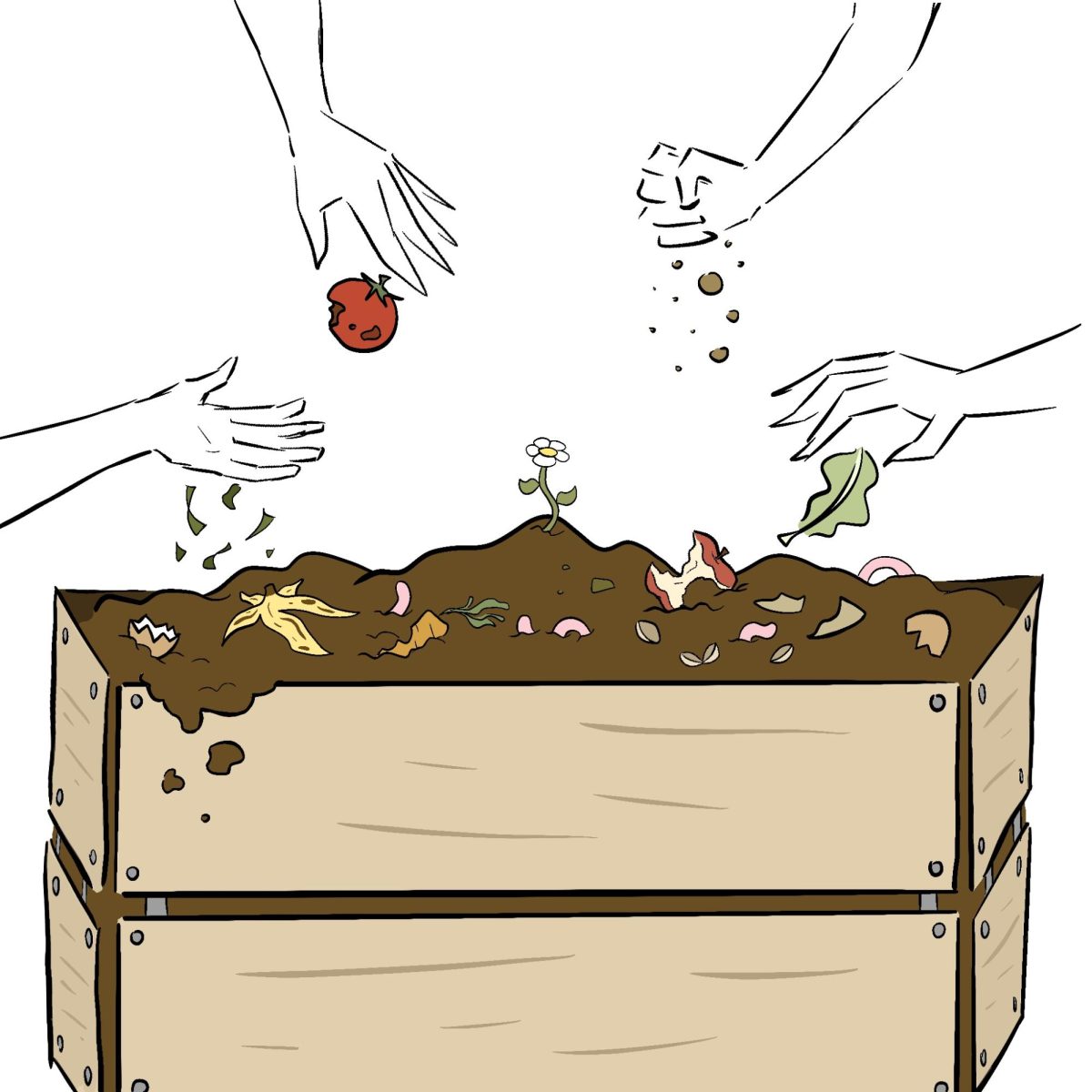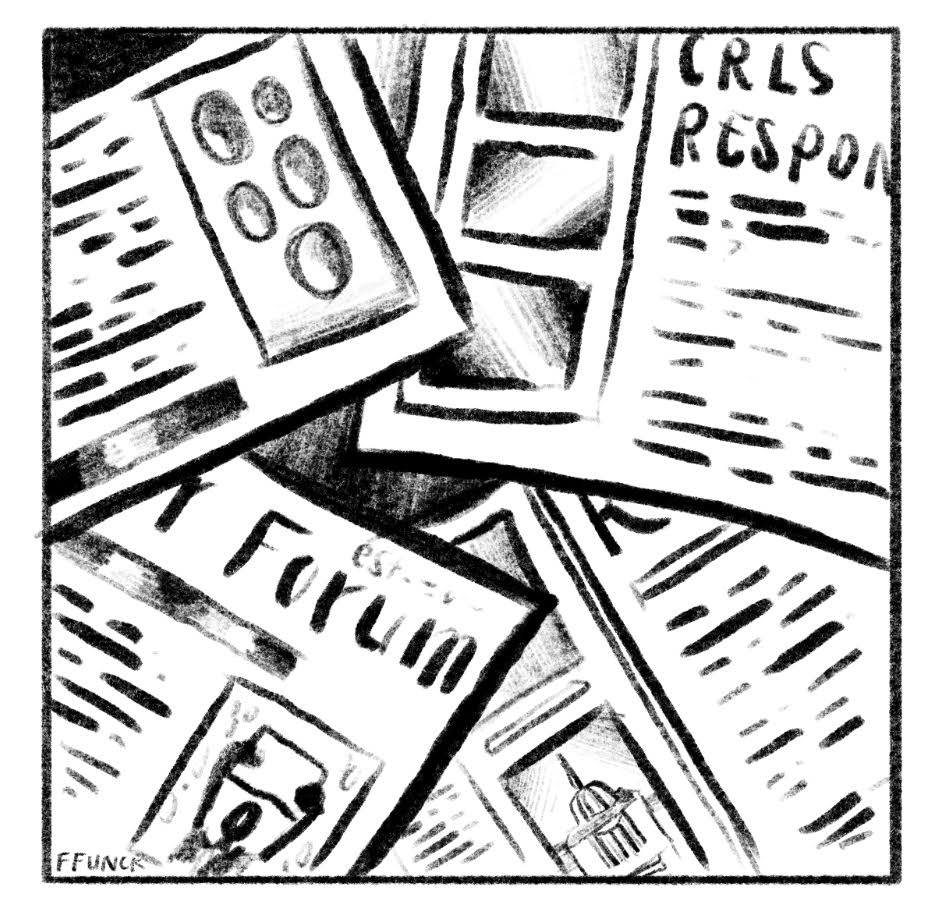Are you tired of stepping on pasta while eating lunch outdoors? As spring sets in and more and more CRLS students venture outdoors to eat their lunches, the problem of outdoor food waste returns. Besides the dissatisfaction of staining new Sambas with red sauce, food waste contributes to ten percent of annual greenhouse gas emissions. These emissions increase global warming at the detriment of humans, other species, and the abiotic environment, according to the United Nations. Fortunately, there is a solution to this problem: composting. The City of Cambridge has developed a composting initiative that has spread through residential areas, government administrative buildings—and now, inside our public schools.
CRLS has had a successful indoor composting program for years, but when it comes to eating outdoors, most food is thrown in the regular trash bin. With no previous option for outdoor composting, students were hardly to blame. That was until Friday, April 4th, 2025, when the outdoor multi-purpose waste receptacle system—colloquially known as the compost cart or just “the cart”—was launched. The cart includes diagrams on each bin with visuals showing what belongs in each bin to help make discarding lunch waste easy. With recycling, trash, and composting bins in one centralized location, proper waste disposal is now accessible to students who eat outdoors.
Many environmentally conscious students and faculty are overjoyed by this opportunity to reduce waste at Rindge. CRLS Latin Club Leader Lucas Economou ‘25 told the Register Forum “I’m genuinely hooked on this cart—I can’t stop telling people to use it.” Students who had taken an environmentally focused class at CRLS seemed particularly excited about the cart, which may be due to AP environmental science teacher Ms. Stomberg, who was integral to the cart’s creation. “This has been a long time coming,” she said, “but all credit to the custodians and others who made it a reality.”
The cart is part of a larger movement to make school campuses greener, a trend that began with college campuses but has spread to high school and elementary schools. With over 75 million children and teenagers in grades K-12, the food waste generated by schools plays a significant role in the U.S.’s climate emissions, according to the School Nutrition Association. Cambridge has been an early adopter of the “green city” model, and the introduction of the compost cart in its flagship public high school reaffirms its commitment to reducing carbon emissions. The composting cart is an easy way to fight climate change on an everyday basis.
This article also appears in our April 2025 print edition.




















